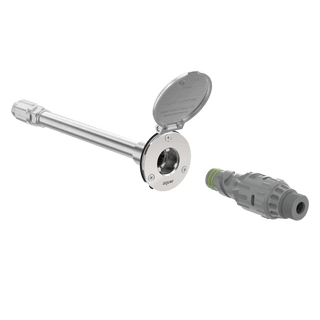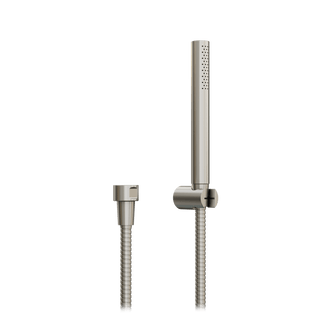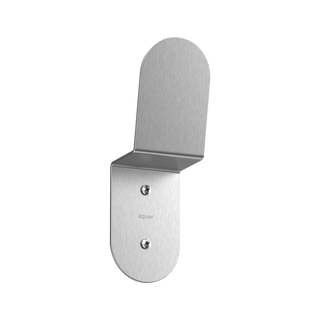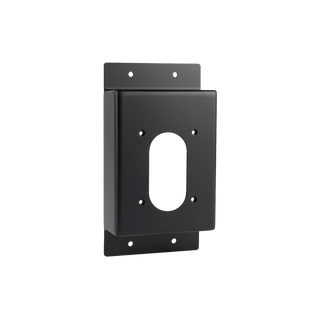Compost, Recycle or Garbage? How to Make Sustainable Choices
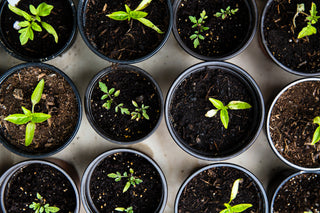
Don’t know what to do with that greasy empty pizza box, your child’s less-than-fridge-worthy report card, or that expired jar of half-eaten mayo? We’ve got you covered! Feel good about discarding various items properly, instead of throwing everything straight into the trash.
Sooo. What can you compost? Before getting into composting let’s focus on consuming what we do have before buying more groceries. Have an open jar of marinara and a bag of spinach in the fridge? Sounds like a pasta night! Not sure what to nosh on for lunch tomorrow? Add more veggies to those Thai leftovers to make a complete meal. Want to get your second serving of fruit in for the day? Snack on an apple with peanut butter after dinner for a healthy treat. Reducing waste will save you money, and help save the planet. A lot of resources go into food that ends up being wasted, including fossil fuels, water, and land use. On average, a family of four in the U.S. spends $1,200 annually on food that is not eaten. Imagine composting $1,200 in dollar bills!

Even if you do plan ahead, you’ll need to compost fruit pits and inedible peels, throw away product stickers and food packaging, and recycle glass jars (plus wine bottles), among many other day-to-day items.
Let’s dive a little deeper into what goes in which bin.
Compost
Think food in, and plastic out. Put food products and food-soiled papers in the compost bin. Plastic containers, bags, and packaging don’t break down and can contaminate compost that we use in our gardens.

Scrape as much food as you can out of the packaging and into the compost bin. Then you can clean and dry the containers before recycling. If you’re unable to properly clean a container, put it in the garbage. Plastic bags typically cannot be recycled at home.
Food can always be composted, including moldy food and food-soiled paper products like pizza boxes.
Typical compostable items include:
- Vegetables, fruits, produce peels, pits
- Bread, pasta, rice
- Coffee grounds
- Egg shells
- Dairy products
- Meat, fish, bones
- Paper coffee filters
- Tea bags
- Food-soiled cardboard, like pizza boxes
- Brown parchment paper
- Paper towels, napkins, tissues
- Uncoated (non-shiny) food-soiled paper like napkins, paper towels, brown paper bags, and paper plates

Properly composted food can become rich, nutrient-dense material for gardens, which can help reduce water use by slowing runoff from rain and sprinklers. Compost can also be a substitute for fertilizers which is harmful to streams, lakes, and wetlands.
Lawn clippings, fallen leaves, and small twigs can also be incorporated with food compost to enrich your yard.

If you’re not going to use the compost for your yard (or give it to someone who will use it for theirs) arrange for compost pickup, or deliver it to a local facility.
Have a post-holiday Christmas tree? Many areas’ waste management services will pick up trees that are left out with waste after Christmas. Tall trees may need to be broken down into sections for easier transportation.

If you’re unsure if an item is compostable after some quick research, go ahead and put it in the garbage to avoid contaminating the compost.
Recycle
After you’ve enjoyed your food and placed scraps in the compost bin, you may be wondering what to do with the packaging. A lot of packaging can be recycled once it’s clean and dry. Several other day-to-day items can be recycled too!
Typical recyclable items include:
- Plastic bottles, jugs, and tubs
- Glass bottles and jars
- Aluminum, tin, and steel cans
- Cardboard, cartons
- Paper, newspapers, magazines, paper bags and paper packaging, unadorned tissue paper

If you’re unsure if an item is recyclable after some quick research, put it in the garbage. Not all plastic is recyclable at home, like plastic bags and wraps, so pay attention to what you’re putting into each bin. Recyclable items can vary by location too!
Garbage
Once you’ve composted and recycled what you can, put remaining items in the garbage (besides hazardous waste), that is, if you’re unable to reuse or donate them of course!
Some items are obviously garbage-bound like bandaids, dental floss, chip bags and candy wrappers, sponges, cat litter, candles, and balloons. While other items may not be as cut and dried.

Commonly recycled items that are actually garbage:
- Plastic bags and wraps
- Heavily dyed, laminated, shiny, or glittery paper, wrapping paper, and tissue paper
- Paper or envelopes with stickers
- Plastic containers with food or waste remnants
- Glass containers with food or waste remnants
- Metal cans with food or waste remnants
- Bottles and jugs containing liquid
-
Wine corks (can recycle at certain facilities)
Reduce the amount of garbage and recyclables you produce by shopping in bulk with your own reusable containers. You can also whip up homemade granola, snack bars, trail mixes, nut milks, and cookies when you have the time. Growing your own produce will also help cut back on garbage and plastics that typically are part of produce packaging purchased at the store. Don’t have the time or space for a garden? Bring reusable bags when shopping.

Sustainable Living
There are many sustainable choices you can make on a daily basis that will help our planet.

Here are some steps you can take to make a difference:
- Walk or bike instead of driving
- Plan out meals to reduce food waste
- Grow your own fruits, veggies, and herbs
- Incorporate plant-based meals into your diet
- Purchase clothing and household items from thrift stores
- Turn lights off when not in use
- Take shorter showers and turn the water off while brushing your teeth
 Sustainable Materials
Sustainable Materials
Along with certain actions you can take to promote a greener Earth, having knowledge about different materials and their environmental impact will also help you make more sustainable decisions.
For example, organic cotton does not use chemical pesticides or fertilizers, limits soil erosion, and requires less water than normal cotton. The advantages of organic cotton extend beyond sustainability, ethics, and economics. Clothing composed of organic cotton are also higher quality, softer, and more durable—you’ll feel good in your clothes and buy less over time.
Stainless steel is one of the most sustainable building materials. Not only can stainless steel last decades, it is also 100% recyclable and produces no toxic byproducts during manufacturing. It’s safe for the environment, manufacturers, and consumers.

Aquor’s modern outdoor faucets are composed of marine-grade stainless steel. The hydrants are frost-proof and leak-free. The sleek flush-mount design is an added bonus.

Many brass plumbing products today are labeled as “lead-free,” although they can legally still contain up to .25% lead. Aquor is proud to produce a 100% zero-lead, non-toxic, food-grade hydrant.

Making sustainable choices doesn’t have to be complicated. With a little research and knowledge, you’ll be able to shop smart and dispose of food scraps, packaging, and other materials properly. Feel good about your footprint.



